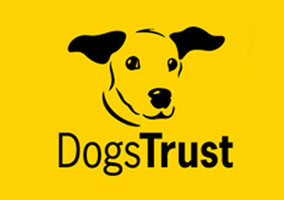For the second time in less than a week a tabloid newspaper has levelled a direct attack on a large household name charity, and for the second time the charity has responded robustly. Yet, we again find ourselves puzzling over how this came about.
There are some charity campaigns that we expect to face criticism from national media, and they are often about controversial issues.
But it’s normally quite difficult to argue with animal welfare charities about campaigns to improve animal welfare. For this reason it was startling, to say the least, to see that the Mirror was accusing the Dogs Trust of “torpedoing” measures to improve animal welfare by sending an email to MPs calling for more measures to improve animal welfare.
The charity responded robustly on Twitter, saying the article was “grossly misleading” and sharing its correspondence with the journalist, Andrew Penman, claiming that he only asked one question, and published their full response.
For his part, Penman has responded on Twitter to say that he called the charity several times.
1. Dogs Trust is being wilfully misleading by saying I asked one question in one email, I've had several email exchanges plus phone calls. 2. Dogs Trust has a history of blocking moves to ban third party puppy sales, see the @Independent of 3/3/17: pic.twitter.com/4rQSAGtut8
— Andrew Penman (@PenmanMirror) May 18, 2018
Dogs Trust responded to insist that for this article they were just contacted the once.
We’ve had several calls & emails over the last year, but in relation to this article, you sent us 1 email. It is fair, in the interests of balanced and accurate journalism to let an organisation know if you are making any claims and to give them a chance to respond.
— Dogs Trust (@DogsTrust) May 18, 2018
But from looking at the charity’s website, the email lobbying MPs ahead of the parliamentary debate next week, and the response it sent to Penman, I find it hard to draw the conclusion that the Dogs Trust is campaigning against the new legislation, rather that it is raising concerns and calling for additional measures.
How did this come about?
After doing a bit of digging it appears that the root cause of this article is a dispute between an animal welfare campaign group and established animal welfare charities.
Cariad Hound, a pressure group demanding an immediate end to selling puppies in pet shops and through other non-commercial dealers, has been running a campaign for Lucy’s Law since December 2017.
The campaign has been championed by the by the Mirror.
Cariad Hound has been critical of the Dogs Trust and the Blue Cross over their positions for some time, but the latest story has been sparked by the email the Dogs Trust public affairs team sent to MPs who were expected to speak at a debate.
In a nutshell, the policy position of the Dogs Trust is that it wants a ban on puppy farming, but it wants it to be accompanied by other measures to ensure it is successful.
Caridad Hound has interpreted this as obstructing their campaign and the Mirror has then described it as an attempt “to derail the fight to end puppy farming, when victory is in sight”.
So who is right?
On a very basic level, everyone is right. Puppy farming is wrong and should be stopped. But no-one is winning here. That is what makes me really quite sad about this story.
It is damaging to the whole campaign to cast the Dogs Trust as the villain in this story, and the fact that the Cariad and the Mirror have opted to do this should give the Dogs Trust and other charities some pause for thought.
It is troubling is that an argument over semantics of how to introduce a ban is being played out in the national papers in an ugly way. It weakens any campaign from the two groups that want essentially the same outcome to be seen to squabbling with each other, rather than focusing on their objective.
It’s also unfair to imply that “victory is within sight”. The debate in parliament next week is a Westminster Hall debate of an e-petition. This is not an opportunity to introduce new legislation. It’s an opportunity to apply pressure to the government.
In this context the Dogs Trust’s letter to MPs is entirely appropriate for interested parties to offer briefings to MPs.
Wider context
In less than a week we’ve seen two tabloid newspapers go after large household name charities and deliberately set out to portray them in a negative light, or at least it seems that way.
Both times the articles complain of high pay in the large charity and imply that it is out of touch with those at the grass roots.
This is a message that the charity sector should reflect on. Are you close enough to the grass roots? And what are you doing to make sure that supporters know that?
But on a more uplifting note, it was good that both charities responded robustly. And they seem to have been rewarded for their efforts with plenty of love on social media.
There will always be people who disagree with you, but on balance it’s reassuring for supporters to see charities defending themselves and being confident in what they do.
And because it is Friday, here’s some pictures from the Dogs Trust’s Instagram feed.
Related articles











